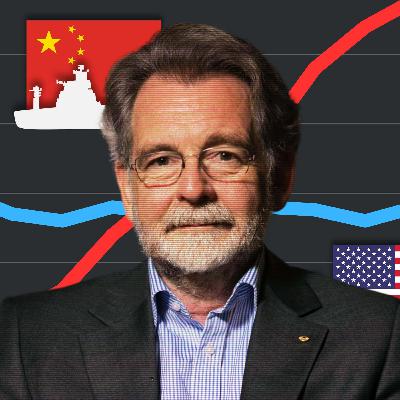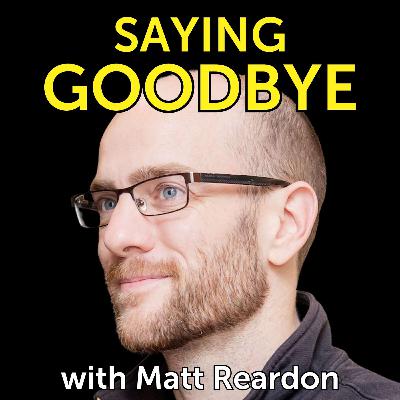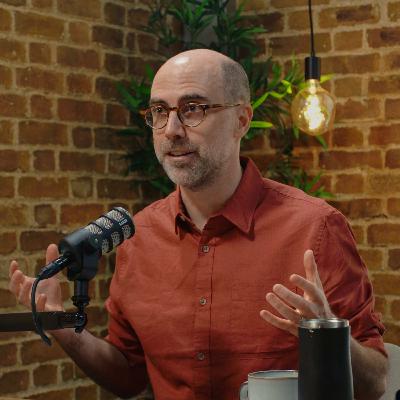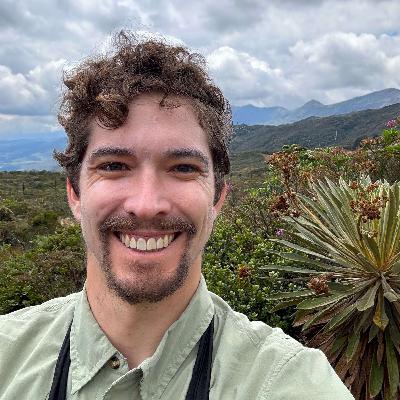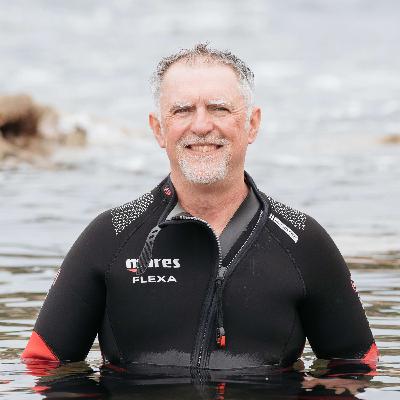Discover 80k After Hours
80k After Hours

109 Episodes
Reverse
For decades, US allies have slept soundly under the protection of America’s overwhelming military might. Donald Trump — with his threats to ditch NATO, seize Greenland, and abandon Taiwan — seems hell-bent on shattering that comfort.But according to Hugh White — one of the world's leading strategic thinkers, emeritus professor at the Australian National University, and author of Hard New World: Our Post-American Future — Trump isn't destroying American hegemony. He's simply revealing that it's already gone.These highlights are from episode #218 of The 80,000 Hours Podcast: Hugh White on why Trump is abandoning US hegemony – and that’s probably good, and include:America has been all talk, no action when it comes to China and Russia (00:39)How Trump has significantly brought forward the inevitable (05:14)Westerners always underestimate what China can achieve (10:32)We live in a multipolar world; we've got to make a multipolar world work (15:47)Trump is half-right that the US was being ripped off (19:06)Europe is strong enough to take on Russia, except it lacks nuclear deterrence (22:27)A multipolar world is bad, but better than the alternative: nuclear war (28:50)Taiwan's position is essentially indefensible — and the rest of the world needs to be honest with them about that (33:24)AGI may or may not overcome existing nuclear deterrence (39:16)These aren't necessarily the most important or even most entertaining parts of the interview — so if you enjoy this, we strongly recommend checking out the full episode!And if you're finding these highlights episodes valuable, please let us know by emailing podcast@80000hours.org.Highlights put together by Ben Cordell, Milo McGuire, and Dominic Armstrong
AI models today have a 50% chance of successfully completing a task that would take an expert human one hour. Seven months ago, that number was roughly 30 minutes — and seven months before that, 15 minutes.These are substantial, multi-step tasks requiring sustained focus: building web applications, conducting machine learning research, or solving complex programming challenges.Today’s guest, Beth Barnes, is CEO of METR (Model Evaluation & Threat Research) — the leading organisation measuring these capabilities.These highlights are from episode #217 of The 80,000 Hours Podcast: Beth Barnes on the most important graph in AI right now — and the 7-month rule that governs its progress, and include:Can we see AI scheming in the chain of thought? (00:00:34)We have to test model honesty even before they're used inside AI companies (00:05:48)It's essential to thoroughly test relevant real-world tasks (00:10:13)Recursively self-improving AI might even be here in two years — which is alarming (00:16:09)Do we need external auditors doing AI safety tests, not just the companies themselves? (00:21:55)A case against safety-focused people working at frontier AI companies (00:29:30)Open-weighting models is often good, and Beth has changed her attitude about it (00:34:57)These aren't necessarily the most important or even most entertaining parts of the interview — so if you enjoy this, we strongly recommend checking out the full episode!And if you're finding these highlights episodes valuable, please let us know by emailing podcast@80000hours.org.Highlights put together by Ben Cordell, Milo McGuire, and Dominic Armstrong
When you have a system where ministers almost never understand their portfolios, civil servants change jobs every few months, and MPs don’t grasp parliamentary procedure even after decades in office — is the problem the people, or the structure they work in?Political journalist Ian Dunt studies the systemic reasons governments succeed and fail. And in his book How Westminster Works …and Why It Doesn’t, he argues that Britain’s government dysfunction and multi-decade failure to solve its key problems stems primarily from bad incentives and bad processes.These highlights are from episode #216 of The 80,000 Hours Podcast: Ian Dunt on why governments in Britain and elsewhere can’t get anything done – and how to fix it, and include:Rob's intro (00:00:00)The UK is governed from a tiny cramped house (00:00:08)Replacing political distractions with departmental organisation (00:02:58)The profoundly dangerous development of "delegated legislation" (00:06:42)Do more independent-minded legislatures actually lead to better outcomes? (00:09:08)MPs waste much of their time helping constituents with random complaints (00:12:50)How to keep expert civil servants (00:15:44)Unlikely heroes in the House of Lords (00:18:33)Proportional representation and other alternatives to first-past-the-post (00:22:02)These aren't necessarily the most important or even most entertaining parts of the interview — so if you enjoy this, we strongly recommend checking out the full episode!And if you're finding these highlights episodes valuable, please let us know by emailing podcast@80000hours.org.Highlights put together by Ben Cordell, Milo McGuire, and Dominic Armstrong
Throughout history, technological revolutions have fundamentally shifted the balance of power in society. The Industrial Revolution created conditions where democracies could dominate for the first time — as nations needed educated, informed, and empowered citizens to deploy advanced technologies and remain competitive.Unfortunately, there’s every reason to think artificial general intelligence (AGI) will reverse that trend.In a new paper, Tom Davidson — senior research fellow at the Forethought Centre for AI Strategy — argues that advanced AI systems will enable unprecedented power grabs by tiny groups of people, primarily by removing the need for other human beings to participate.These highlights are from episode #215 of The 80,000 Hours Podcast: Tom Davidson on how AI-enabled coups could allow a tiny group to seize power, and include:"No person rules alone" — except now they might (00:00:13)The 3 threat scenarios (00:06:17)Underpinning all 3 threats: Secret AI loyalties (00:10:15)Is this common sense or far-fetched? (00:13:46)How to automate a military coup (00:17:41)If you took over the US, could you take over the whole world? (00:22:44)Secret loyalties all the way down (00:26:27)Is it important to have more than one powerful AI country? (00:29:59)What transparency actually looks like (00:33:08)These aren't necessarily the most important or even most entertaining parts of the interview — so if you enjoy this, we strongly recommend checking out the full episode!And if you're finding these highlights episodes valuable, please let us know by emailing podcast@80000hours.org.Highlights put together by Ben Cordell, Milo McGuire, and Dominic Armstrong
Most AI safety conversations centre on alignment: ensuring AI systems share our values and goals. But despite progress, we’re unlikely to know we’ve solved the problem before the arrival of human-level and superhuman systems in as little as three years.So some — including Buck Shlegeris, CEO of Redwood Research — are developing a backup plan to safely deploy models we fear are actively scheming to harm us: so-called “AI control.” While this may sound mad, given the reluctance of AI companies to delay deploying anything they train, not developing such techniques is probably even crazier. These highlights are from episode #214 of The 80,000 Hours Podcast: Buck Shlegeris on controlling AI that wants to take over – so we can use it anyway, and include:What is AI control? (00:00:15)One way to catch AIs that are up to no good (00:07:00)What do we do once we catch a model trying to escape? (00:13:39)Team Human vs Team AI (00:18:24)If an AI escapes, is it likely to be able to beat humanity from there? (00:24:59)Is alignment still useful? (00:32:10)Could 10 safety-focused people in an AGI company do anything useful? (00:35:34)These aren't necessarily the most important or even most entertaining parts of the interview — so if you enjoy this, we strongly recommend checking out the full episode!And if you're finding these highlights episodes valuable, please let us know by emailing podcast@80000hours.org. Highlights put together by Ben Cordell, Milo McGuire, and Dominic Armstrong
Watch this episode on YouTube! https://youtu.be/fJssGodnCQgConor and Arden sit down with Matt in his farewell episode to discuss the law, their team retreat, his lessons learned from 80k, and the fate of the show.
The 20th century saw unprecedented change: nuclear weapons, satellites, the rise and fall of communism, third-wave feminism, the internet, postmodernism, game theory, genetic engineering, the Big Bang theory, quantum mechanics, birth control, and more. Now imagine all of it compressed into just 10 years.That’s the future Will MacAskill — philosopher and researcher at the Forethought Centre for AI Strategy — argues we need to prepare for in his new paper “Preparing for the intelligence explosion.” Not in the distant future, but probably in three to seven years.These highlights are from episode #213 of The 80,000 Hours Podcast: Will MacAskill on AI causing a “century in a decade” — and how we’re completely unprepared, and include:Rob's intro (00:00:00)A century of history crammed into a decade (00:00:17)What does a good future with AGI even look like? (00:04:48)AI takeover might happen anyway — should we rush to load in our values? (00:09:29)Lock-in is plausible where it never was before (00:14:40)ML researchers are feverishly working to destroy their own power (00:20:07)People distrust utopianism for good reason (00:24:30)Non-technological disruption (00:29:18)The 3 intelligence explosions (00:31:10)These aren't necessarily the most important or even most entertaining parts of the interview — so if you enjoy this, we strongly recommend checking out the full episode!And if you're finding these highlights episodes valuable, please let us know by emailing podcast@80000hours.org. Highlights put together by Simon Monsour, Milo McGuire, and Dominic Armstrong
Technology doesn’t force us to do anything — it merely opens doors. But military and economic competition pushes us through. That’s how Allan Dafoe — director of frontier safety and governance at Google DeepMind — explains one of the deepest patterns in technological history: once a powerful new capability becomes available, societies that adopt it tend to outcompete those that don’t. Those who resist too much can find themselves taken over or rendered irrelevant.These highlights are from episode #212 of The 80,000 Hours Podcast: Allan Dafoe on why technology is unstoppable & how to shape AI development anyway, and include:Who's Allan Dafoe? (00:00:00)Astounding patterns in macrohistory (00:00:23)Are humans just along for the ride when it comes to technological progress? (00:03:58)Flavours of technological determinism (00:07:11)The super-cooperative AGI hypothesis and backdoors (00:12:50)Could having more cooperative AIs backfire? (00:19:16)The offence-defence balance (00:24:23)These aren't necessarily the most important or even most entertaining parts of the interview — so if you enjoy this, we strongly recommend checking out the full episode!And if you're finding these highlights episodes valuable, please let us know by emailing podcast@80000hours.org. Highlights put together by Simon Monsour, Milo McGuire, and Dominic Armstrong
Watch this episode on YouTube! https://youtu.be/IRRwHCK279EMatt, Bella, and Huon sit down with Chi Nguyen to discuss cooperating with aliens, elections of future past, and Bad Billionaires pt. 2.Check out: Matt’s summer appearance on the BBC on funding for the artsChi’s ECL Explainer (get in touch to support!)
Economist and editor of Works in Progress Sam Bowman isn’t content to just condemn the Not In My Back Yard (NIMBY) mentality behind rich countries' construction stagnation. He wants to actually get a tonne of stuff built, and by that standard the strategy of attacking ‘NIMBYs’ has been an abject failure. They are too politically powerful, and if you try to crush them, sooner or later they crush you.So Sam lays out three alternative strategies in our full interview with him — including highlights like:Rich countries have a crisis of underconstruction (00:00:19)The UK builds shockingly little because of its planning permission system (00:04:57)Overcoming NIMBYism means fixing incentives (00:07:21)NIMBYs aren't wrong: they are often harmed by development (00:10:44)Street votes give existing residents a say (00:16:29)It's essential to define in advance who gets a say (00:24:37)Property tax distribution might be the most important policy you've never heard of (00:28:55)Using aesthetics to get buy-in for new construction (00:35:48)Locals actually really like having nuclear power plants nearby (00:44:14)It can be really useful to let old and new institutions coexist for a while (00:48:27)Ozempic and living in the decade that we conquered obesity (00:53:05)Northern latitudes still need nuclear power (00:55:30)These highlights are from episode #211 of The 80,000 Hours Podcast: Sam Bowman on why housing still isn’t fixed and what would actually work. These aren't necessarily the most important, or even most entertaining parts of the interview — so if you enjoy this, we strongly recommend checking out the full episode!And if you're finding these highlights episodes valuable, please let us know by emailing podcast@80000hours.org. (And you may have noticed this episode is longer than most of our highlights episodes — let us know if you liked that or not!)Highlights put together by Simon Monsour, Milo McGuire, and Dominic Armstrong
We explored the cutting edge of wild animal welfare science our full interview with Cameron Meyer Shorb, executive director of Wild Animal Initiative, including highlights like:One concrete example of how we might improve wild animal welfare (00:00:16)How many wild animals are there, and which animals are they? (00:04:24)Why might wild animals be suffering? (00:08:40)The objection that we shouldn't meddle in nature because nature is good (00:12:25)Vaccines for wild animals (00:17:37)Gene drive technologies (00:20:50)Optimising for high-welfare landscapes (00:24:52)These highlights are from episode #210 of The 80,000 Hours Podcast: Cameron Meyer Shorb on dismantling the myth that we can’t do anything to help wild animals. These aren't necessarily the most important, or even most entertaining parts of the interview — so if you enjoy this, we strongly recommend checking out the full episode!And if you're finding these highlights episodes valuable, please let us know by emailing podcast@80000hours.org.Highlights put together by Simon Monsour, Milo McGuire, and Dominic Armstrong
Nonprofit legal expert Rose Chan Loui lays out the legal case and implications of OpenAI's attempt to shed its nonprofit parent. This episode is a selection of highlights from our full interview with Rose, including:How OpenAI carefully chose a complex nonprofit structure (00:00:26)The nonprofit board is out-resourced and in a tough spot (00:04:09)Is control of OpenAI 'priceless' to the nonprofit in pursuit of its mission? (00:06:47)Control of OpenAI is independently incredibly valuable and requires compensation (00:11:06)It's very important that the nonprofit gets cash and not just equity (00:16:06)How the nonprofit board can best play their hand (00:21:20)These highlights are from episode #209 of The 80,000 Hours Podcast: Rose Chan Loui on OpenAI’s gambit to ditch its nonprofit. These aren't necessarily the most important, or even most entertaining parts of the interview — so if you enjoy this, we strongly recommend checking out the full episode!And if you're finding these highlights episodes valuable, please let us know by emailing podcast@80000hours.org.Highlights put together by Simon Monsour, Milo McGuire, and Dominic Armstrong
Elizabeth Cox — founder of the independent production company Should We Studio — makes the case that storytelling can improve the world. This episode is a selection of highlights from our full interview with Elizabeth, including:Keiran’s intro (00:00:00)Empirical evidence of the impact of storytelling (00:00:16)The hits-based approach to storytelling (00:03:35)Debating the merits of thinking about target audiences (00:07:48)Ada vs other approaches to impact-focused storytelling (00:13:15)Why animation? (00:18:56)How long will humans stay relevant as creative writers, given AI advances? (00:22:40)These highlights are from episode #208 of The 80,000 Hours Podcast: Elizabeth Cox on the case that TV shows, movies, and novels can improve the world. These aren't necessarily the most important, or even most entertaining parts of the interview — so if you enjoy this, we strongly recommend checking out the full episode!And if you're finding these highlights episodes valuable, please let us know by emailing podcast@80000hours.org.Highlights put together by Simon Monsour, Milo McGuire, and Dominic Armstrong
Charity founder Sarah Eustis-Guthrie has a candid conversation about her experience starting and running her maternal health charity, and ultimately making the difficult decision to shut down when the programme wasn’t as impactful as they expected. This episode is a selection of highlights from our full interview with Sarah:Luisa’s intro (00:00:00)What it's like to found a charity (00:00:14)Yellow flags and difficult calls (00:03:17)Disappointing results (00:06:28)The ups and downs of founding an organisation (00:08:37)Entrepreneurship and being willing to make risky bets (00:12:58)Why aren't more charities shutting down? (00:16:50)How to think about shutting down (00:19:39)These highlights are from episode #207 of The 80,000 Hours Podcast: Sarah Eustis-Guthrie on why she shut down her charity, and why more founders should follow her lead. These aren't necessarily the most important, or even most entertaining parts of the interview — so if you enjoy this, we strongly recommend checking out the full episode!And if you're finding these highlights episodes valuable, please let us know by emailing podcast@80000hours.org.Highlights put together by Simon Monsour, Milo McGuire, and Dominic Armstrong
Neuroscientist Anil Seth explains how much we can learn about consciousness by studying the brain in these highlights from our full interview — including:Luisa’s intro (00:00:00)How our brain interprets reality (00:00:15)How our brain experiences our organs (00:04:04)What psychedelics teach us about consciousness (00:07:37)The physical footprint of consciousness in the brain (00:12:10)How to study the neural correlates of consciousness (00:15:37)This is a selection of highlights from episode #206 of The 80,000 Hours Podcast: Anil Seth on the predictive brain and how to study consciousness. These aren't necessarily the most important, or even most entertaining parts of the interview — so if you enjoy this, we strongly recommend checking out the full episode!And if you're finding these highlights episodes valuable, please let us know by emailing podcast@80000hours.org.Highlights put together by Simon Monsour, Milo McGuire, and Dominic Armstrong
Science writer and video blogger Sébastien Moro blows our minds with the latest research on fish consciousness, intelligence, and potential sentience.This is a selection of highlights from episode #205 of The 80,000 Hours Podcast: Sébastien Moro on the most insane things fish can do. These aren't necessarily the most important, or even most entertaining parts of the interview — so if you enjoy this, we strongly recommend checking out the full episode.And if you're finding these highlights episodes valuable, please let us know by emailing podcast@80000hours.org.Highlights:Luisa’s intro (00:00:00)The ingenious innovations of Atlantic cod (00:00:19)The mirror test triumph of cleaner wrasses (00:05:46)The astounding accuracy of archerfish (00:10:30)The magnificent memory of gobies (00:14:25)The tactical teamwork of the grouper and moray eel (00:17:42)The remarkable relationships of wild guppies (00:22:01)Sébastien's take on fish consciousness (00:26:48)Highlights put together by Simon Monsour, Milo McGuire, and Dominic Armstrong
Election forecaster Nate Silver gives his takes on: how effective altruism could be better, the stark tradeoffs we faced with COVID, whether the 13 Keys to the White House is "junk science," how to tell whose election predictions are better, and if venture capitalists really take risks.This is a selection of highlights from episode #204 of The 80,000 Hours Podcast: Nate Silver on making sense of SBF, and his biggest critiques of effective altruism. These aren't necessarily the most important, or even most entertaining parts of the interview — so if you enjoy this, we strongly recommend checking out the full episode. And if you're finding these highlights episodes valuable, please let us know by emailing podcast@80000hours.org.Highlights:Rob’s intro (00:00:00)Is anyone doing better at "doing good better"? (00:00:29)Is effective altruism too big to succeed? (00:02:19)The stark tradeoffs we faced with COVID (00:06:02)The 13 Keys to the White House (00:07:53)Can we tell whose election predictions are better? (00:11:40)Do venture capitalists really take risks? (00:16:29)Highlights put together by Simon Monsour, Milo McGuire, and Dominic Armstrong
This is a selection of highlights from our April 2023 episode with host Luisa Rodriguez and producer Keiran Harris on 80k After Hours. These aren't necessarily the most important, or even most entertaining parts of the interview — and if you enjoy this, we strongly recommend checking out the full episode:Luisa and Keiran on free will, and the consequences of never feeling enduring guilt or shameAnd if you're finding these highlights episodes valuable, please let us know by emailing podcast@80000hours.org.Highlights:Keiran’s intro (00:00:00)Jerk Syndrome (00:00:53)The basic case for free will being an illusion (00:05:10)Feeling bad about not being a different person (00:08:29)Implications for the criminal justice system (00:10:57)Highlights put together by Simon Monsour, Milo McGuire, and Dominic Armstrong
This is a selection of highlights from episode #203 of The 80,000 Hours Podcast. These aren't necessarily the most important, or even most entertaining parts of the interview — and if you enjoy this, we strongly recommend checking out the full episode:Peter Godfrey-Smith on interfering with wild nature, accepting death, and the origin of complex civilisationAnd if you're finding these highlights episodes valuable, please let us know by emailing podcast@80000hours.org.Highlights:Luisa’s intro (00:00:00)Thinking about death (00:00:24)Uploads of ourselves (00:05:32)Against intervening in wild nature (00:12:36)Eliminating the worst experiences in wild nature (00:16:15)To be human or wild animal? (00:21:46)Challenges for water-based animals (00:27:38)Highlights put together by Simon Monsour, Milo McGuire, and Dominic Armstrong
Watch this episode on YouTube! https://youtu.be/yncw2T77OAcMatt, Bella, and Huon sit down with Conor Barnes to discuss unlikely journeys, EA criticism, discipline, timeless decision theory, and how to do the most good with a degree in classics. Check out:Conor’s 100 Tips for a Better Life: https://www.lesswrong.com/posts/7hFeMWC6Y5eaSixbD/100-tips-for-a-better-lifeConor’s writing: https://parhelia.conorbarnes.com/Zvi on timeless decision theory: https://www.lesswrong.com/posts/scwoBEju75C45W5n3/how-i-lost-100-pounds-using-tdt


